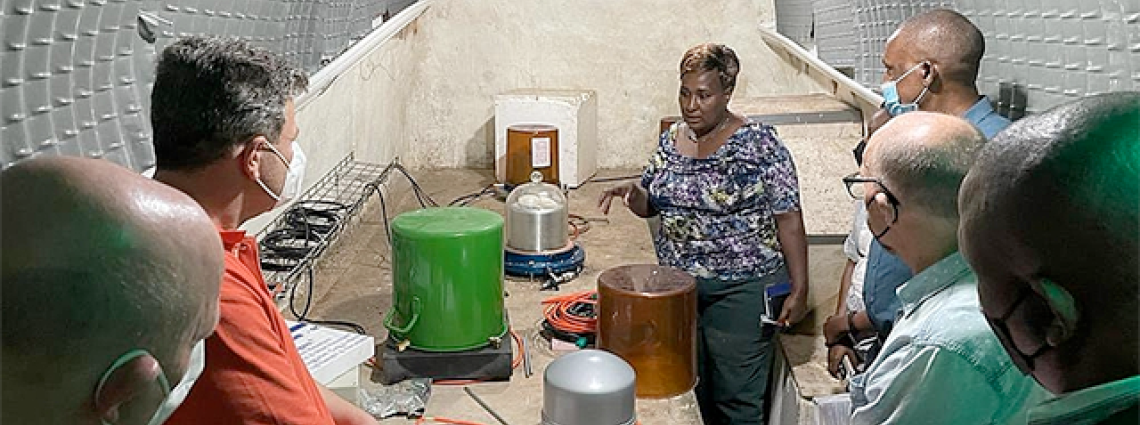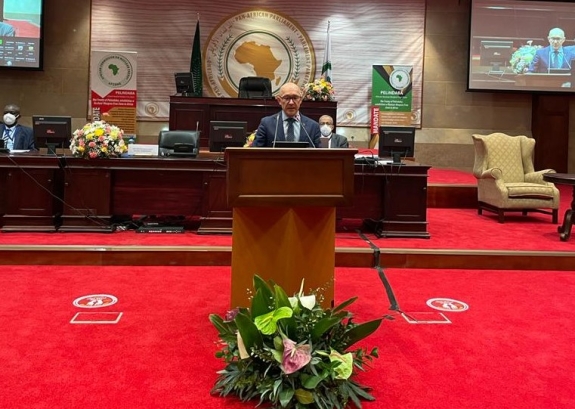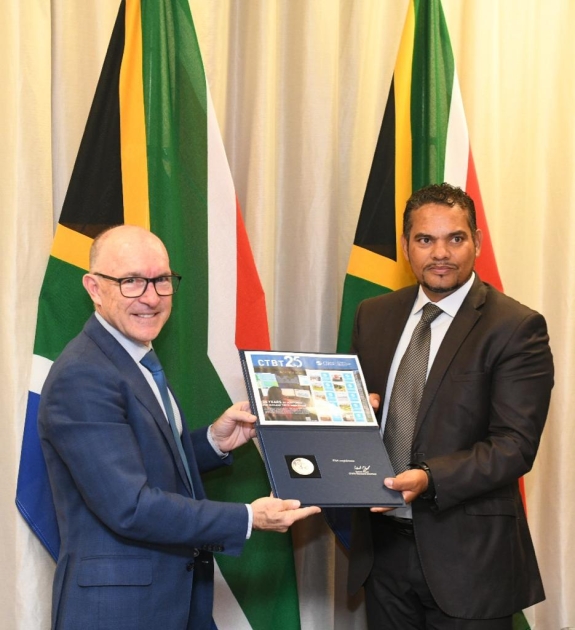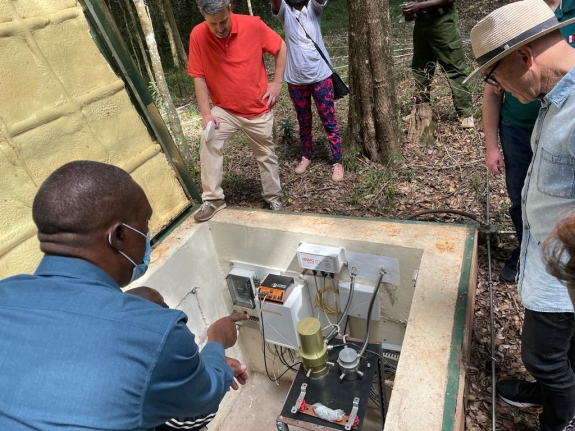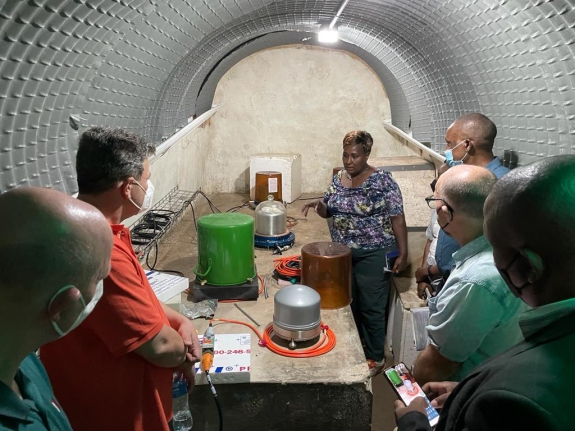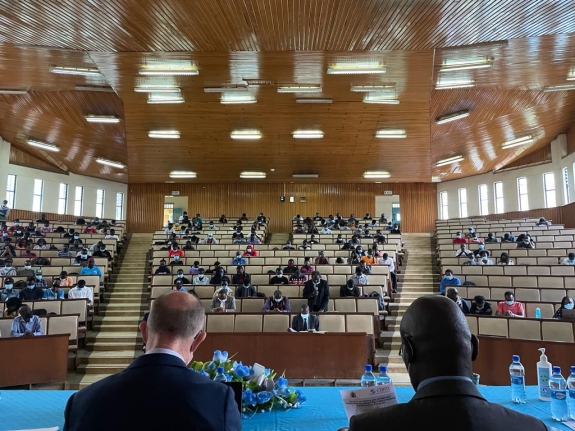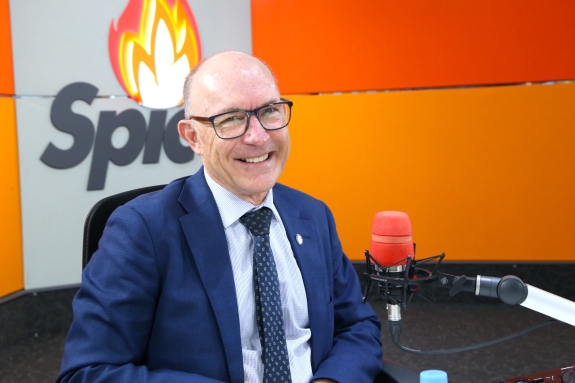CTBTO head hails Africa’s key non-proliferation and disarmament role
CTBTO Executive Secretary Robert Floyd has underlined Africa’s central role in global nuclear non-proliferation and disarmament with a trip to the continent, hailing its Nuclear-Weapon-Free Zone and strong support for the Comprehensive Nuclear-Test-Ban Treaty (CTBT) in its 25th anniversary year.
In a six-day visit to South Africa and Kenya, Floyd spoke with delegates to a major conference of the Nuclear-Weapon-Free Zone, met senior national officials, academics, university and high school students, and visited CTBT International Monitoring System (IMS) facilities.
Kicking off in Johannesburg on 21 October, Floyd addressed the 5th Conference of States Parties to the Pelindaba Treaty, which established Africa as a Nuclear-Weapon-Free Zone 25 years ago.
“Visiting Africa in my new capacity as Executive Secretary was a top priority for me, and I am thankful for this opportunity,” he told the conference, which was hosted by the African Commission on Nuclear Energy (AFCONE).
Floyd said the Pelindaba Treaty and the CTBT are “indispensable and mutually reinforcing elements of the global disarmament and non-proliferation regime and play an essential role in establishing the legal and technical framework for a world free of nuclear weapons”.
Africa is playing a central role in global disarmament and non-proliferation efforts.
Just seven African countries have yet to sign and/or ratify the CTBT. Floyd said he was committed to working with them to move towards that goal, including provision of legal and other assistance as needed, and encouraged African countries that have already ratified to join this outreach effort.
Africa plays a significant role in the CTBT’s unique monitoring system to ensure that no nuclear test can go undetected, hosting 38 of the 337 IMS facilities designated under the Treaty.
While in South Africa, Floyd visited the country’s main nuclear research centre at Pelindaba, west of the capital Pretoria, the site of one of 16 radionuclide laboratories in the IMS. South Africa also hosts two seismic, one infrasound and one radionuclide station and co-administers a seismic station in Antarctica with Germany.
He met senior South African officials including the Deputy Minister of International Relations and Cooperation, Alvin Botes, a long-standing supporter of the CTBT. The two discussed future collaboration and Africa’s contribution to nuclear disarmament and non-proliferation.
Travelling on to Kenya on 23 October, Floyd visited two more IMS facilities: an infrasound station tucked away in a forest on the outskirts of the capital, Nairobi, and the Kilimambogo seismic station situated in a 42-metre tunnel in a national park. He was accompanied by representatives from the Department of Geology of the University of Nairobi, which is responsible for the facilities.
In Nairobi he met senior officials from Kenya’s Ministry of Foreign Affairs and Ministry of Education, as well as leaders of educational and technical institutions. He also engaged with university and high school students on the CTBT’s key contribution to international peace and security.
28 Oct 2021
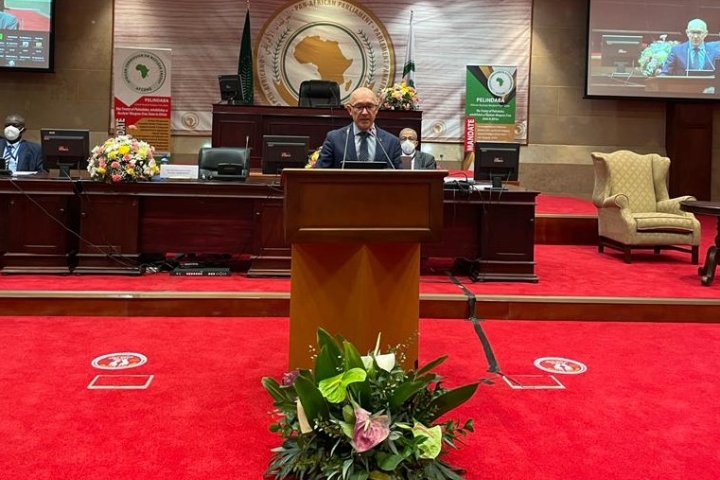
CTBTO Executive Secretary Floyd addresses the 5th Conference of States Parties to the Pelindaba Treaty in Johannesburg
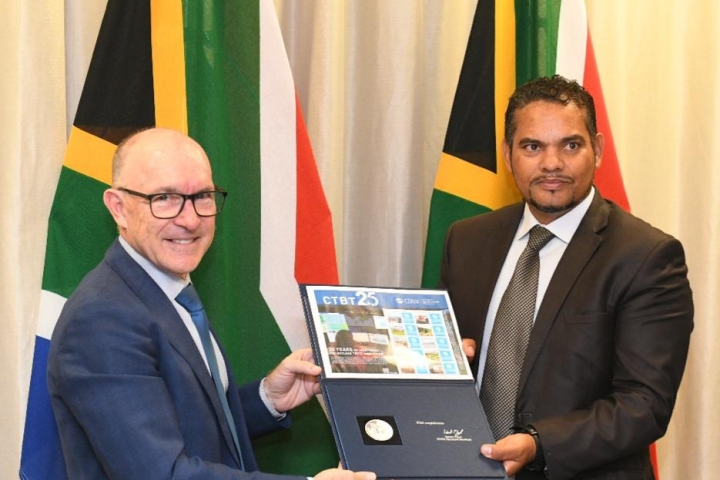
CTBTO Executive Secretary Floyd meets South Africa's Deputy Minister of International Relations and Cooperation, Alvin Botes
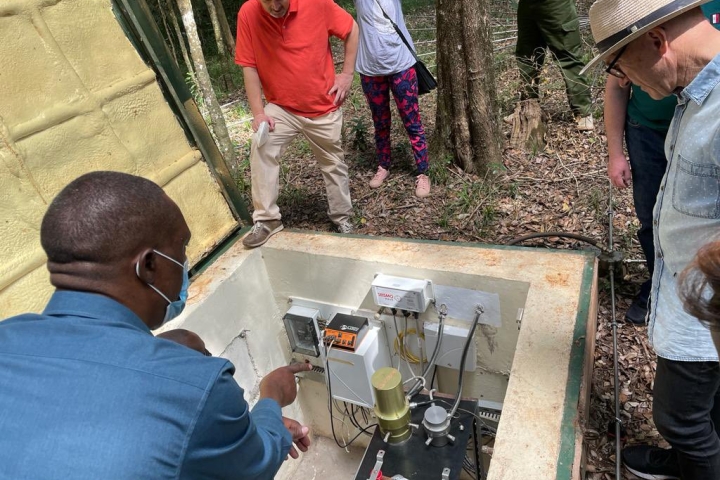
CTBTO team visits an infrasound station on the outskirts of Nairobi
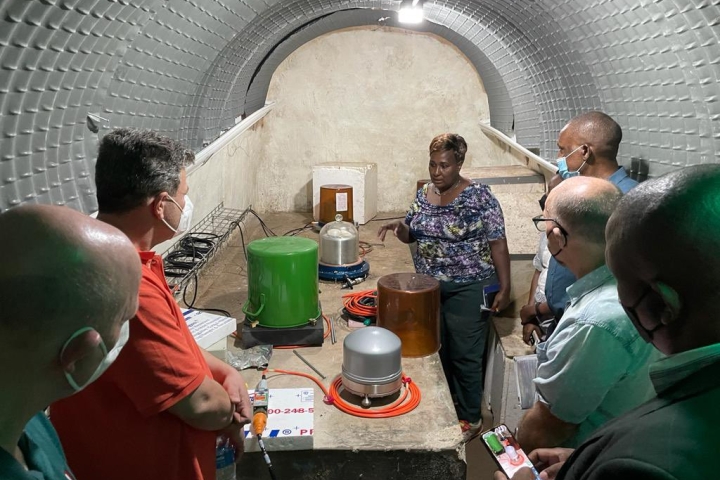
CTBTO team visits Kilimambogo seismic station in Kenya
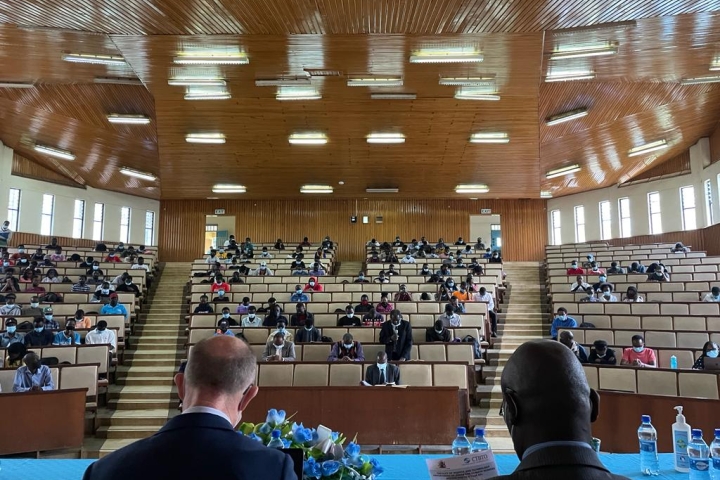
Hundreds of students join CTBTO Executive Secretary Floyd at the University of Nairobi
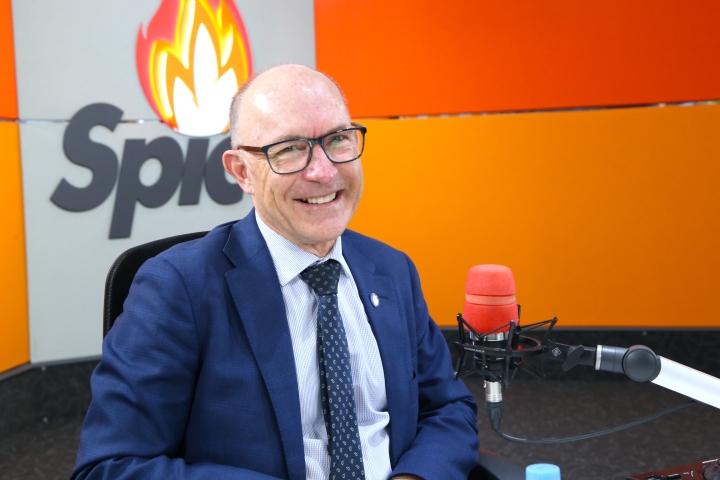
Executive Secretary Floyd interviewed by Kenya's Spice FM
